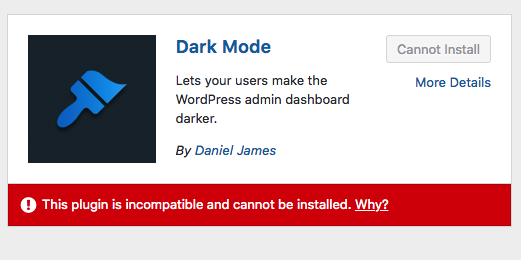The group of people in the #core-php channel has been discussing and planning a project codenamed “servehappy” for some time now. We are at the point where we think that our plan has matured enough to present it to a bigger WordPress audience, in the hopes that we can get buy-in from more people to support or join our cause.
Goals
Primary Goal (long-term, indirect):
- Reduce the number of WordPress installations running on an unsupported PHP The web scripting language in which WordPress is primarily architected. WordPress requires PHP 5.6.20 or higher version
Secondary Goals (short-term, direct):
- Make WordPress site owners aware that they are running an unsupported version of PHP
- Educate WordPress site owners about PHP and its versions
- Provide WordPress site owners with tools and resources that enable them to update their site’s PHP version
The primary goal is what we’re aiming at. However, this is not something we can directly act upon. The secondary goals are the actionable elements that are in line with the primary goal.
We are confident that we can produce a definite positive impact on the primary goal through a concerted effort on these secondary goals.
Current State
A good overview of the current state can be found in the project repository’s README.md file.

ServeHappy page mockup
Click to enlarge
Through our regular weekly meetings we’ve made good progress on putting together the content for an informational page called “servehappy“ (in reference to the “browsehappy” page that helped get rid of legacy web browsers). The page should ideally be hosted on the wordpress.org infrastructure, similar to how the browsehappy page is stored.

Admin (and super admin) notice mockup
Click to enlarge
This page is meant to be linked to by admin notice(s) in the WordPress admin dashboard that will appear for people with unsupported PHP versions. Work on implementing these can start as soon as we have confirmation that the servehappy project should be further pursued.

Plugin A plugin is a piece of software containing a group of functions that can be added to a WordPress website. They can extend functionality or add new features to your WordPress websites. WordPress plugins are written in the PHP programming language and integrate seamlessly with WordPress. These can be free in the WordPress.org Plugin Directory https://wordpress.org/plugins/ or can be cost-based plugin from a third-party requirements mockup
Click to enlarge
Finally, we want to work on enforcing plugin/theme PHP requirements as they can already be stated in the plugin/theme meta Meta is a term that refers to the inside workings of a group. For us, this is the team that works on internal WordPress sites like WordCamp Central and Make WordPress. information. With time, this will provide developers with better control over their code base and incentivize site owners to keep up with the WordPress ecosystem’s evolution.
We’ve prepared a short overview document that details the core integrations and how they tie into the servehappy page.
As a side note, while working on the servehappy page content, we started collecting links to various resources that can be of use to people wanting to update their PHP version. These can be found in a separate servehappy-resources repository.
Project Progression
We intend to target only PHP 5.2.x initially, to not put too much pressure on the support channels of hosting providers. When a reasonable amount of time has passed and most of the initial updating effort has been completed, we can consider moving the needle up to PHP 5.3.x.
Provided that we have a clear roadmap, transparent communication and the patience to let site owners and hosters handle the updates in manageable intervals, this provides us with a tool to slowly catch up to PHP releases and reduce the currently growing gap between WordPress requirements and PHP versions.
Timeline
Here’s our current preliminary timeline:
Of course, these are only guesstimates. The actual development work involved makes this timeline easily possible, but what is time-consuming (and hard to predict) is the amount of discussions that are needed to find a concensus on all critical decisions.
Our Request
Before we invest more time into this project, we want to get a basic decision (in principle) about whether we should pursue or not.
- Is the
servehappy project worthwhile and do we have a general buy-in from Core Core is the set of software required to run WordPress. The Core Development Team builds WordPress. leadership?
- Can we make the
servehappy project an official feature project?
- Information Page – Can this page be hosted on the
wordpress.org infrastructure?
- Information Page – Who is responsible for the final editorial check?
To this end, we had the servehappy project added to the agenda of the upcoming devchat meeting on 10th Jan, 2018. This post was prepared to allow attendees of this meeting to get a quick overview of the project in preparation for the meeting.
#php, #roadmap, #servehappy







You must be logged in to post a comment.